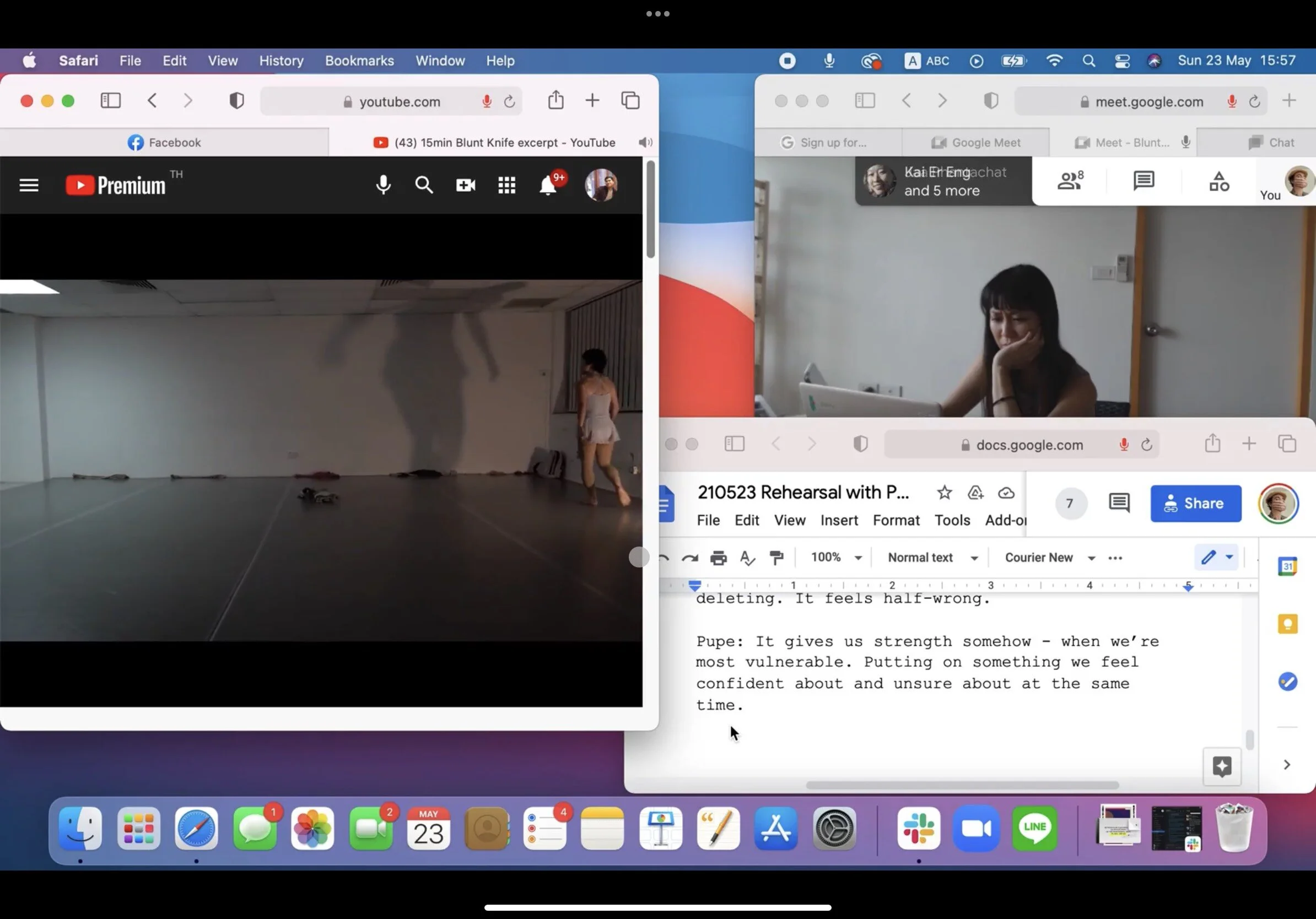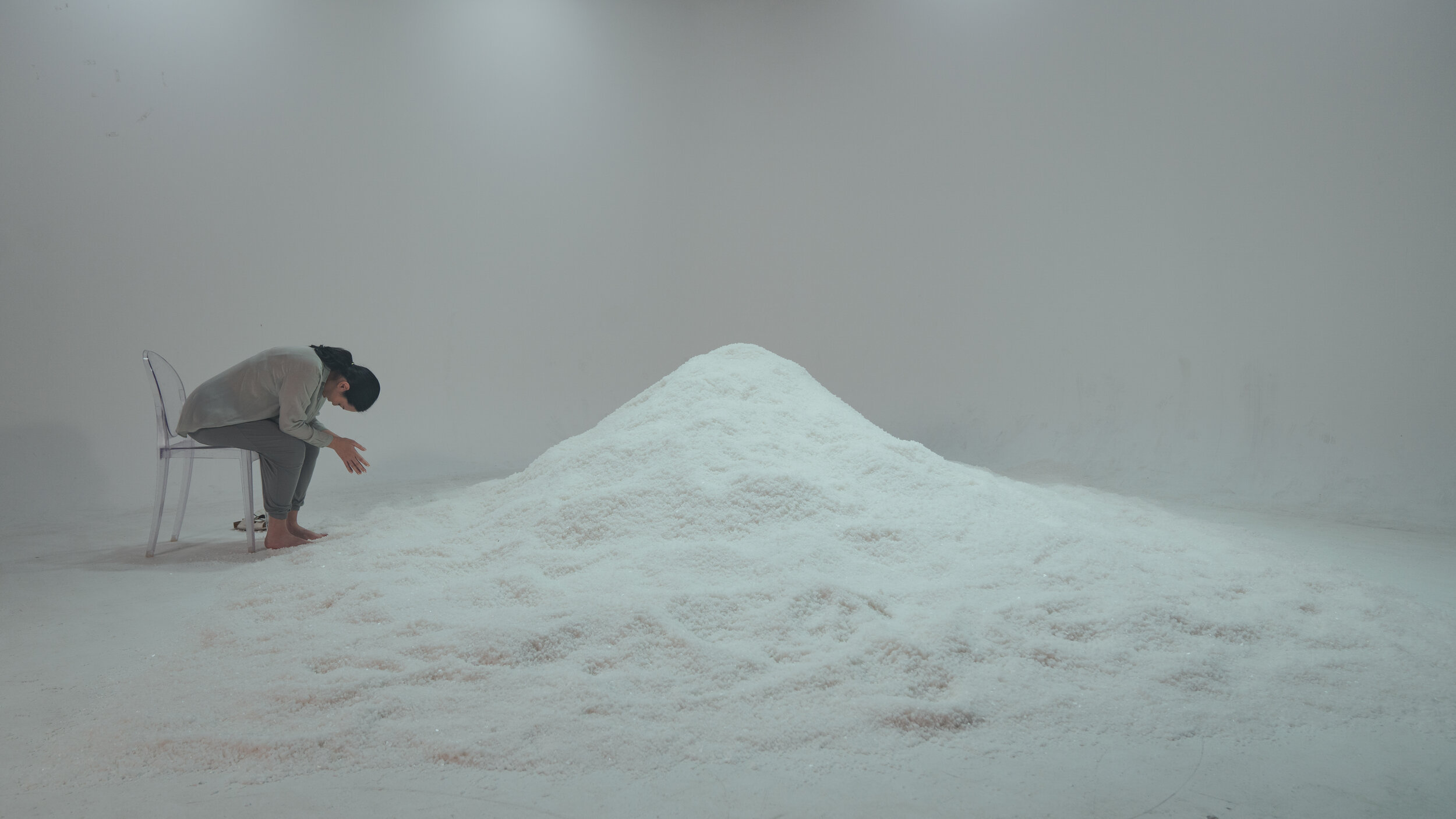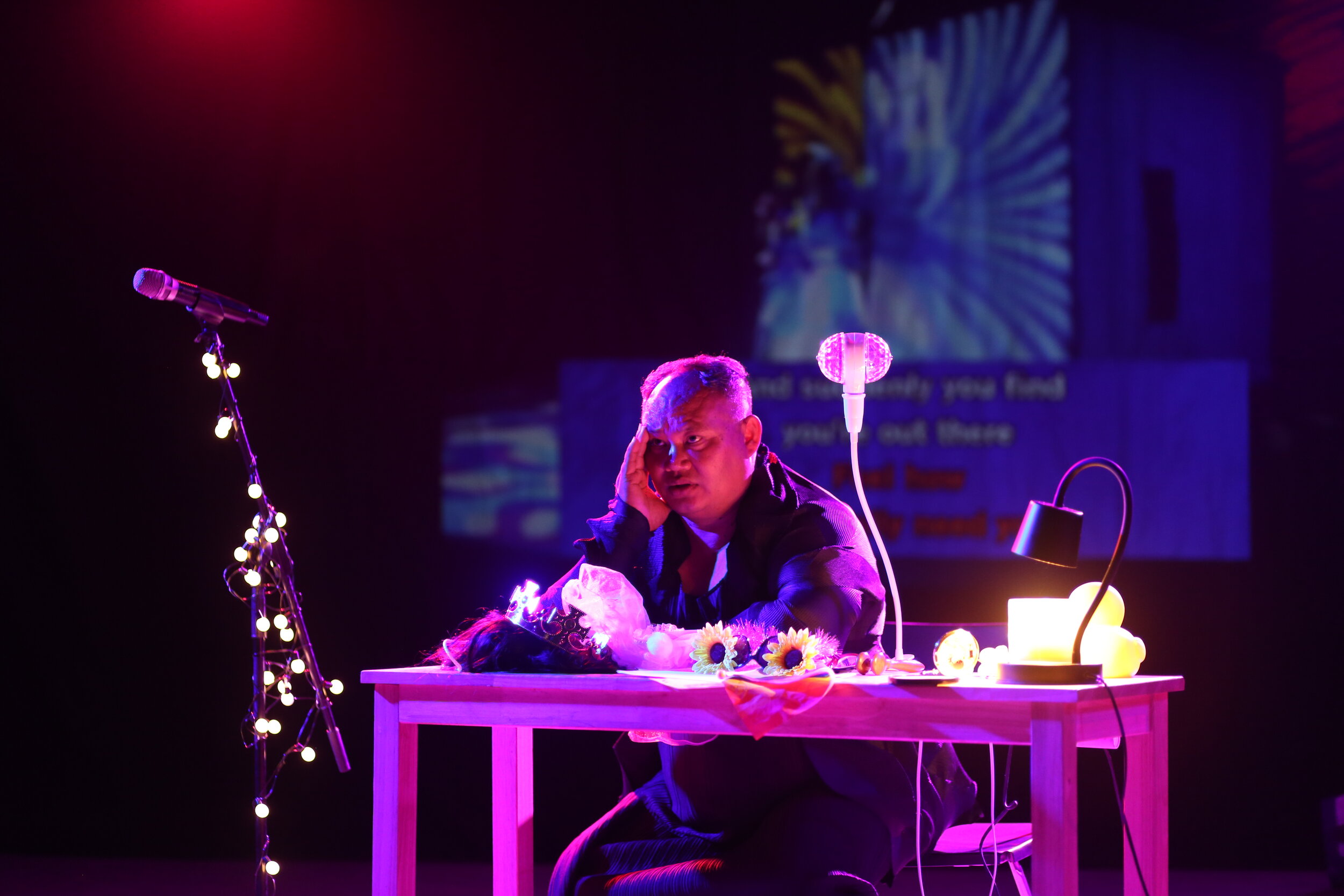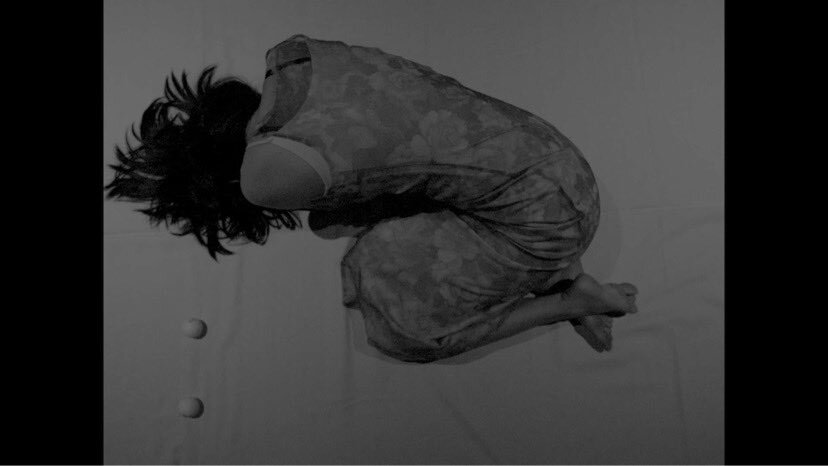Covid-19 has caused disruptions to the survival of live performing arts all over the world. In Thailand, Bangkok International Performing Arts Meeting or BIPAM, which launched itself as a platform for international exchange since 2017, confronted multi-facet difficulties since the spread of Covid-19 in 2020, continued to pursue the annual event as an online festival held from Sept 1-5, 2021 (with online viewing accessible until September 12). Compared with pre-Covid era in 2019, BIPAM2021 was compact in size but large in its resilience, courage and effort that, more than ever before, resonated with the many pressing issues faced by countries in Southeast Asia.
Moving from on-site to Pheedloop online platform where other programs such as Chat, ZOOM, Google Doc, or Photo Booth were utilized, BIPAM2021 featured 4 types of programs featuring showcases, talks, special events, and networking hours. Starting with a fundraising program that aimed to help Myanmar artists through auctions of NFT arts, BIPAM offered “premiere” online viewings of 6 pieces of showcase performances : ' B O R R O W ', An Imperial Sake Cup and I, Pieng Buhn, The 4th Rehearsal, Deleted Scenes from SEA (excerpts from 3 plays), and A Perfect Conversation - Oh! Ode x Blunt Knives on Google Doc Jam. All constituted different experiences of online theatre/performance via different modes and styles of presentation.
The online performances ranged from straight pre-recorded performance to experimental mode of pre-recorded performance. For example, An Imperial Sake Cup and I, Oh! Ode and Blunt Knife (in A Perfect Conversation) and Pieng Buhn have all been performed live in performance spaces in the past, consequently, what BIPAM offered were the edited video recording versions but would be on premiere for online viewers for the first time. The 4th Rehearsal, ' B O R R O W ', Deleted Scenes from SEA were the only three performances that were performed for the first time for the public, and they both brought novelty and new hopes to the online theatre possibilities.
' B O R R O W ' was based on Dujdao Vadhanapakorn’s concept about one’s identity and his/her relationships with those around her. It was with the premise that questioned us whether we truly understood ourselves. She put all her four performers in a private room with a pile of salt, while she coached and gave them questions from outside the rooms. Each could only hear her voice from a headset. Visual and presentation modes have made me understand Dujdao’s intention of this performance practice, and it was powerful.
An Imperial Sake Cup and I was presented as a “lecture-performance” by Dr. Charnvit Kasetsiri (born 1941), a renowned Thai historian who at 80 performed through telling of his anecdotes of important events in his life, starting from his precious gift collection, a royal sake cup which was given to him by then Crown-Prince Akihito and his consort when they visited Thailand in 1964, together with other objects of Charnvit’s collection such as pottery items, antique houseware, songs and photographs. The “lecture” went from Charnvit’s recall of his memories relevant to the transnational and interpersonal relationship between Japan and Thailand, against the backdrop of WWII and political uprisings in Thailand. To have a historical figure such as Charnvit performing his own point of view of events was a powerful documentary performance done with refined artistic presentation of projected images and shadows, lighting, recorded voice of other characters and music.
Pieng Buhn (Wings) was a solo performance based on an autobiography of Kam, a woman from Dara-Ang tribe who migrated from Myanmar during the civil war 40 years ago to the northern part of Thailand, whose story represented how ethnic minorities in Thailand have been treated as the ‘Others’ and have often suffered from state regulations and even incarcerations. Kam has never been trained as an actress, but Pongjit Sappakhun (Makhampom Theatre) assisted Kam with the script-writing and performance direction. The performance, accompanied by simple tune of Dara-Ang’s flute music, made small narratives from Kam very prominent to the international viewing. With the performance’s authenticity, simplicity, and sincerity, Kam’s story revealed her suffering, strength and resilience towards all the mistreatments and injustices she had experienced or witnessed.
The 4th Rehearsal was an experimental performance involved the life and work of a veteran artist Wannasak Sirilar and an emerging artist Pathipon Adsavamahapong, both of whom took turns “directing” each other, part of the performance was an interview of Sirilar, whose autobiography and sincere point of view on being queer and a theatre artist identity were revealed in a moving manner. Deleted Scenes from SEA Scenes from 3 performance scripts of Southeast Asia, namely Indonesia, Thailand, and Singapore, were never before performed for the public due to censorship in all those countries.
BIPAM created an exceptional opportunity for these scripts to be performed. By swapping each script to a foreign theatre group, and allowing them to direct and showcase the performance online, somehow, has created a powerful transnational public performance. The first play, “Suksesi” (Succession) written by Nano Riantiarno in 1990 from Indonesia, performed by a Thai theatre team, directed by Thanaphon Accawatanyu, is a political satire about a royal succession symbolized through a short glimpse of the princess’ speech debut at a fashion gala. The satire was made through “online-stickers” animation and some dressed-up “pedigree dogs” photos, whereas the princess and her royal father were acted out as in solo speeches.
“History Class 2057” by Prajak Kongkirati, Thailand, written in 2017 for Wittaya Artamat’s What We Talk About When We Don’t Talk About The Elephant In The Room (but History Class scene was censored in 2017), performed by Indonesian performers, directed by Irfanuddien Ghozali, depicted future classroom when a professor and 3 other students discussed about an uprising in A.D.2032 (B.D. 2575) which would have been exactly 100 years after the first revolution in Thailand in 1932. The fictional conversation revealed the brutality of authoritarian government which ended up with a People’s revolution. The video production was recorded from a ZOOM-based performance, with each actor acted in their confined ZOOM space. Sometimes, a screen-background was shown with historical images of the people’s struggles. The composition of the performers was inclusive with a transwoman; Jessica Ayudya Lesmana acted as the teacher; Svetlana Dayani, a real-life survivor of the Indonesian genocide of 1965, acted as a student; and there were also a senior lady who sat in the classroom as a student, a deaf young man acting as another student, and a Muslim woman acting as sign interpreter.
The third excerpt, “INSURGENCY”, written by Elangovan, from Singapore, performed by Thai performers, directed by Accawatanyu, started with a resonant Thai song “Krai Nor” (a Thai song preaching the great sacrifices of parents for their children, reminding the audience of propaganda songs) and was followed by a scene of interrogation of a Muslim woman by 2 soldiers, where verbal and physical abuse and possibly sexual abuse were done to the female victim. As one soldier coerced the younger soldier to rape the woman, we could also experience the dramatic tension of conscience struggle. This last excerpt, was conveyed through experimental aesthetics utilizing cinematographic techniques of fussy black and white projection flashing on the screen and onto the soldiers’ faces and bodies. When accompanied by sound design and staged reading of the script, the eerie aesthetics was created via the audience’s active and brutal imagination rather than via passive viewing.
By having the cross-cultural performers acting out a foreign script and performing online with English subtitles, to prevent censorship, Deleted Scene from SEA transcended different backgrounds and cultural-specific contexts, revealing the common themes of state oppression, corruption, injustice, and inhumane treatment of the People, all shared by SEA countries.
A critical FB response from Uthis Haemamool reads (translated from Thai),
“ What makes Deleted Scenes from SEA interesting is not only its serious contents, but also the fact that the foreign actors and directors were able to interpret and act out the scripts with ease reflecting the common painful and filthy experiences we all shared, despite the fact that each script was written for another landscape, location, place, gender, and culture. These common sufferings shall lead us to a certain enlightenment, in order for us to change for a common consciousness in the SEA region.”
Responses on FB and Talk sessions that accompanied each online premiere added a lot to the sense of being in a festival. Having a precise date and time of the first online release of each production has somehow allowed the audiences, who were being socially distanced of course, to experience the online release as a somewhat ‘communal’ event. Although the audience were not being together, a sense of occasion was created by having an awareness that other members were also in front of their devices at the same time. On the other hand, with internet accessibility, one could always choose not to be a part of this communal experience but simply choose to watch the online video clips on their own time. In addition, the Talk sessions on ZOOM for each of the production did help the audience feel closer to the artists and the audience community, regardless of their locations in this world.
In terms of interactive viewing aspect during a performance, A Perfect Conversation: Oh Ode x Blunt Knife Google Doc Jam By Sasapin Siriwanij & Eng Kai Er was described as followed:
“ (…) two artists invite you to write, read, watch videos; speak, listen, bear witness; confront, retreat, and play together. The performance starts on Zoom, then travels to Google Doc and YouTube. It draws on previous works by each of the artists - “Oh! Ode” (2017) by Sasapin Siriwanij and “Blunt Knife” (2019) by Eng Kai Er.”1
In Oh! Ode, Sasapin posed as a Thai classical dancer in a frozen tableau while a few assistants helped sculpt her into a ‘perfect’ body with clay, then painted her into a Thai dancing doll. Blunt Knife revealed Kai’s personal life during teenage years. Seeing their exhausting efforts to “fit in” with traditional discourses, we could also experience how society’s expectations could demoralize free-spirited women. Somehow, the festival’s theme on “ownership” took the audience by surprise when the “ownership” of one’s body and identity was taken away in front of their eyes.
All in all, BIPAM2021 definitely put Thailand (and SEA) to the international map of performative art festivals. By curating an event that brought questions on ‘ownership’ in our lives, the Artistic Director, Sasapin Siriwanij and the team’s hard work has paid off. The festival showed us that perhaps we never really owned anything under the authoritarian government except our own courage and hope. As Sasapin Siriwanij tried to push our collective future forward, she called out:
“Art must persist. But how then, do we start to seek and grasp strength in order to get back up on our feet? The Theme of Ownership invites you to explore your ownership of things around you. Let’s rejoin, recharge, and rekindle your creativity in order to move onwards.”2
-- August 4,2021
Congratulations! BIPAM 2021.
1 Source: BIPAM 2021
2 Source: FB BIPAM
Author: Associate Professor Dr. Parichat Jungwiwattanaporn
A theatre practitioner and a scholar at the Department of Drama, Thammasat University, Thailand. In addition to directing experimental theatre productions, she has also been well-known for her academic researches on contemporary theatre/performance in Thailand and SEA, political theatre, and applied drama.














